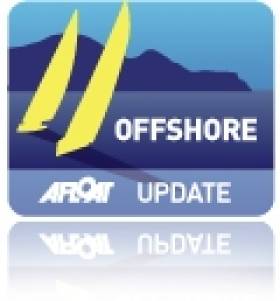Displaying items by tag: Dee
Royal Navy Office for Offshore Yachtswoman Caffari
Caffari, who set her third world record earlier this year by sailing non-stop around the planet more times than any other woman in history, joins the likes of adventurer Bear Grylls and fellow British yachtswoman Dame Ellen McArthur who have both received similar naval distinctions. On receiving the news that her appointment had been approved by Her Majesty Queen Elizabeth II, a delighted Caffari said:
"It is an honour to be recognised for my achievements and support of the armed forces. I have enjoyed the links I have established and maintained with the Royal Navy and look forward to being presented with my uniform! Having not worn a uniform since school, I am excited about preparing for my role at Dartmouth, being fitted with a uniform and learning to salute correctly"
One of the main links Caffari has with the navy is through her work as an ambassador for the tri service initiative, Toe In The Water. The volunteer based charity uses competitive sailing as a direct extension of the rehabilitation programmes carried by the Defence Medical Rehabilitation Centre (DMRC) Headley Court to re-inspire profoundly and traumatically injured service personnel to explore life beyond their injuries. Caffari first competed with Toe in the Water at the Dartmouth Regatta in 2009 and has continued to work closely with them since them, racing alongside many injured and able-bodied Royal Navy and Royal Marines crew members, as well as soldiers and airmen.
Director General of Army Medicine and Toe in the Water Chairman, Major General M von Bertele OBE commented:
"Dee has been a great inspiration to many of our injured servicemen and women and her energy, genuine enthusiasm and commitment to the work we do is invaluable. It's great to see her dedication and passion recognised in this way."
Caffari's next goal is to compete in the Vendée Globe 2012 with the intention of securing a podium position and the search for a new title sponsor to support her on-going sailing campaign continues.
























































